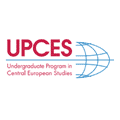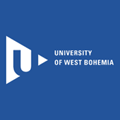Universities in Czech Republic

CERGE-EI Charles University, Undergraduate Program in Central European Studies
Prague, Czech Republic
The UPCES was created in 2001, through the partnership of the CERGE Economic Institute and Charles University's Faculty of Humanities. The purpose of the program is to encourage students with high academic records to come to Prague and study with well-qualified instructors subjects related to Central European Studies. Striving not simply to ensure excellent academic standards, the Undergraduate Program in Central European Studies aims to provide students genuine exposure to the Central European culture. Diversity is very much tolerated, and it is mostly talent that is sought after for... See full description.

University of West Bohemia
Pilsen, Czech Republic
The University of West Bohemia is located in Pilsen and was founded in 1991. It consists of eight faculties with more than 60 departments and their almost 19,000 students receive training of bachelor, master and doctoral degree programs.
Universities in Czech Republic by City:
BrnoČeské BudějoviceOlomoucPilsenPragueAbout universities in Czech Republic
The Czech Republic is a country located in Central Europe with a proud tradition and rich cultural history. Landlocked by its neighboring countries, Germany, Poland, Austria and Slovakia, the Czech Republic has a very diverse population of just over 1.3 million, and a representative democracy in the form of a pluralist multi-party parliament. Education in this country, including its system of higher education and universities, is a very high priority and governed by the Ministry of Education, Youth and Sports.
The Czech’s history of higher education dates back hundreds of years to the time of Emperor Charles IV who founded the country’s first university in Prague—a university that still serves today as a functioning institution of higher learning. Universities in the Czech Republic, of which there are many, are given plenty of freedom to design the individual courses of study they offer; however, before any program can be implemented it must first be approved by the Czech Accreditation Commission.
The official language of the Czech Republic is Czech, which is also the primary language of instruction at each of the public, state (police and military institutions) and private colleges and universities. However, in recent years many universities have begun offering certain courses of study in other languages as well, particularly in English to meet the needs of international students.
Admission into Czech higher learning institutions, at least for the first stage of education, the Bachelor program, requires successful completion of a full secondary general education or secondary vocational education, and a passing score on the “maturitni zkouška,” or school-leaving examination. Students planning to pursue a degree in fine arts that have gained their “absolutorium,” or discharge from a conservatoire may also be admitted. Master’s degree program admittance is dependent on successful completion of a relevant Bachelor Degree, and Doctoral candidates must first earn a Master’s degree in a similar field. Applications need to be sent to the individual institutions, prior to the deadline in early March.
Prior to acceptance at most institutions of higher learning in the Czech Republic, students will also be required to sit for an entrance examination, which is essentially a competence test in basic general education.
In the late 1990s, in response to the Bologna Declaration, the structure of education and degrees at Czech universities was transformed into a 3-cycle system, offering Bachelor, Master’s and Doctorate Degrees in each successive cycle. This change, along with the adoption of the European Credit Transfer System (ECTS), was implemented as a way to standardize education at higher learning schools throughout the European Union, thus making it easier for European students to transfer and progress in their education.
In the Czech Republic the school year at higher education institutions is divided between two semesters, each consisting of 15 weeks of study and a 5-week examination period. One week of holiday is afforded students in the winter, and another two months (July and August) are allowed after the spring semester.
Perhaps the most attractive feature of public education in the Czech Republic is that it’s entirely free of charge for all citizens, with just a few exceptions. Students will need to pay a nominal fee for the admission and testing process, and those seeking an additional degree at the same level (Bachelor, Master, etc.) will also have to pay for those courses. Additionally, any courses not taught in the Czech language, i.e., courses for international students have a tuition requirement.
Private educations are free to set their own pricing, which in the Czech Republic ranges from $2000-$15000 annually when calculated in U.S. dollars.
The Czech’s history of higher education dates back hundreds of years to the time of Emperor Charles IV who founded the country’s first university in Prague—a university that still serves today as a functioning institution of higher learning. Universities in the Czech Republic, of which there are many, are given plenty of freedom to design the individual courses of study they offer; however, before any program can be implemented it must first be approved by the Czech Accreditation Commission.
The official language of the Czech Republic is Czech, which is also the primary language of instruction at each of the public, state (police and military institutions) and private colleges and universities. However, in recent years many universities have begun offering certain courses of study in other languages as well, particularly in English to meet the needs of international students.
Admission into Czech higher learning institutions, at least for the first stage of education, the Bachelor program, requires successful completion of a full secondary general education or secondary vocational education, and a passing score on the “maturitni zkouška,” or school-leaving examination. Students planning to pursue a degree in fine arts that have gained their “absolutorium,” or discharge from a conservatoire may also be admitted. Master’s degree program admittance is dependent on successful completion of a relevant Bachelor Degree, and Doctoral candidates must first earn a Master’s degree in a similar field. Applications need to be sent to the individual institutions, prior to the deadline in early March.
Prior to acceptance at most institutions of higher learning in the Czech Republic, students will also be required to sit for an entrance examination, which is essentially a competence test in basic general education.
In the late 1990s, in response to the Bologna Declaration, the structure of education and degrees at Czech universities was transformed into a 3-cycle system, offering Bachelor, Master’s and Doctorate Degrees in each successive cycle. This change, along with the adoption of the European Credit Transfer System (ECTS), was implemented as a way to standardize education at higher learning schools throughout the European Union, thus making it easier for European students to transfer and progress in their education.
In the Czech Republic the school year at higher education institutions is divided between two semesters, each consisting of 15 weeks of study and a 5-week examination period. One week of holiday is afforded students in the winter, and another two months (July and August) are allowed after the spring semester.
Perhaps the most attractive feature of public education in the Czech Republic is that it’s entirely free of charge for all citizens, with just a few exceptions. Students will need to pay a nominal fee for the admission and testing process, and those seeking an additional degree at the same level (Bachelor, Master, etc.) will also have to pay for those courses. Additionally, any courses not taught in the Czech language, i.e., courses for international students have a tuition requirement.
Private educations are free to set their own pricing, which in the Czech Republic ranges from $2000-$15000 annually when calculated in U.S. dollars.

